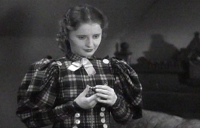 |
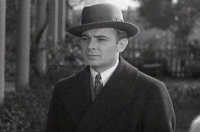 |
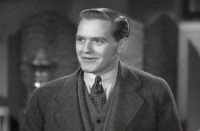 |
| Selina Peake … Barbara Stanwyck |
Roelfe Pool … George Brent |
Dirk De Jong … Hardie Albright |
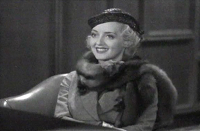 |
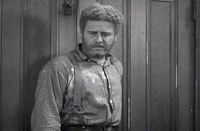 |
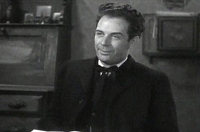 |
| Dallas O’Mara … Bette Davis |
Klass Pool … Alan Hale |
Pervus De Jong … Earle Fox |
Proof That It’s Pre-Code
- This one’s actually fairly blase to be totally honest, though many of its themes seem to be especially reflective of the time it was made.
- … yes, we all know what you thought this movie was about when you read the title. I know I did the same thing, but, I hate to break it to ya, it’s nothing like that.
So Big!: Reaffirming the Faith
Anyone who’s seen a Barbara Stanwyck movie after a certain point knows what to expect. A certain swagger, a certain look, something about her that makes her one of the toughest broads to ever grace the silver screen. What’s interesting about So Big! is that all of these mannerisms are gone: we know this version of Stanwyck is tough because of the dirt under her fingernails.
We first see Selina as a young girl in the summer of 1880, waiting for her father’s return and holding a flower for his lapel in his hand. We know he adores her when he sees the flower and tosses his fresh new flower to the ground. The two have dinner, and we see how their loving relationship works.
He’s a gambler, and they live well when the returns high and live poor when they aren’t. He’s a smart gambler, too, knowing not to let pressures get to him or stick with a long gamble, good or bad. Selina, who seems to be in awe of actresses and the exotic life of travel that they possess, hangs on her father’s words.
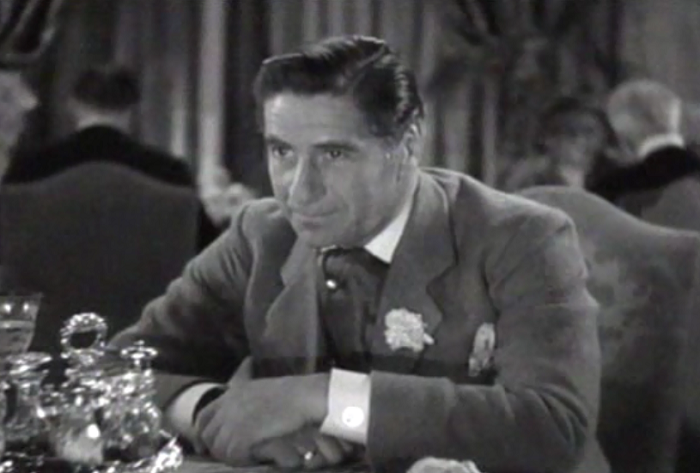
“Buckle up, kid, it’s time for some truth in this fine eating establishment.”
He takes the opportunity of one particular good win to tell her how he sees life working. “I want you to realize this whole thing called life is just a grand adventure,” he notes. “The trick is to act in it and look out at the same time. And remember: no matter what happens – good or bad – it’s just so much velvet.”
We jump ahead and now Selina is Stanwyck, and she’s just finished finishing school. She heads home to find that her father has been shot in an altercation. Those at the boarding house and the police gather around to see her reaction after they’ve brought his body to her room, but she turns and very politely– with all the measure she can muster– curtsies. Everyone departs, leaving her alone.
These opening scenes are great in establishing the nature of Selina’s character; loyal and sweet natured, but responsible and a little daring. Her curtsy is one of kindness, gratitude and respect, and is returned to many times in the movie. Selina, above most else, is humbled by the kindness of others no matter who they are. In a world baked with hardscrabble cynicism, it’s a breath of fresh air.
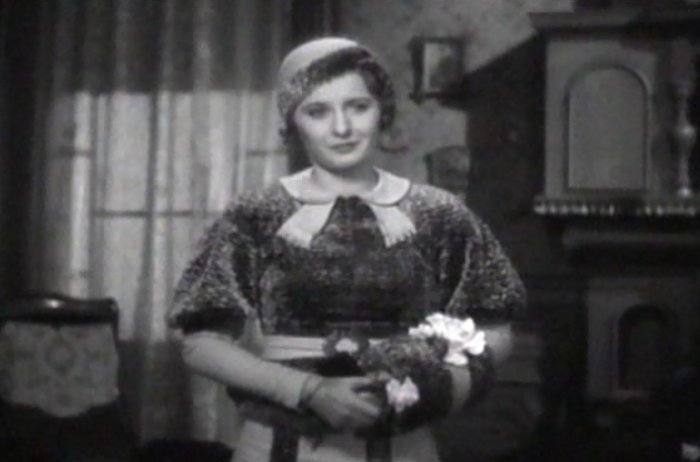
And curtsy to you.
Speaking of hardscrabble, with the death of her father, it’s time for Selina to make her own way in the world. One of her school friends arranges for her to go ten miles out of Chicago to teach in a farming town called High Plains.
“I’m almost appalled at how beautiful everything is here!” she exclaims as she’s driven through the fields by horse and carriage by a very grumpy Klaus Pool. His family has volunteered to host her while she gets set up in the school, and, in his thick Scandinavian accent, he declares her viewpoints on fields of cabbage utterly silly.
On the farm she finds an ally in kind Mrs. Pool, who has raised a pair of giggling daughters and one hardworking son, Roelfe. Mrs. Pool, who looks to be in her 50s, is in actuality barely past 30; a farmer’s wife works hard, and it shows on her face.
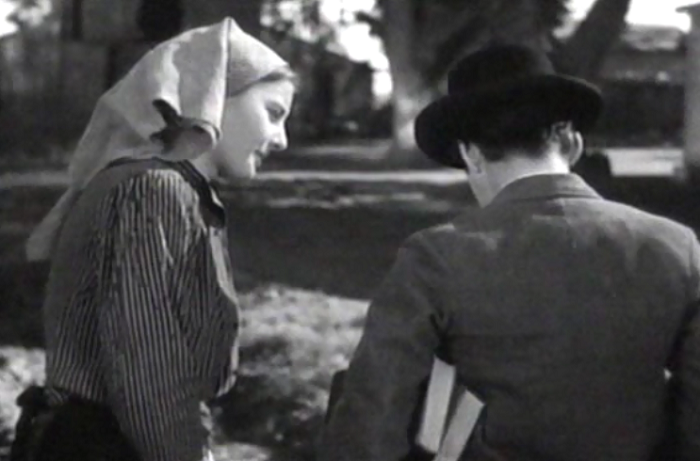
Use the books, Roelfe!
Despite the constant ribbing from Klaus and his brother, Selina settles in as new school marm, and even offers to help Roelfe by giving him books and tutoring him. Roelfe takes this up eagerly since he’s unsurprisingly developed a crush on the teacher who offers him praise and kindness.
Unfortunately for young Roelfe, Selina sets her eyes on a local farmer named Pervus De Jong, a dull, brute man who, uh, seems nice I guess. She offers to give him English lessons in the evenings after he buys her dinner at the church raffle, and, despite Roelfe’s attempts to make chaos, he stumbles upon the two kissing.
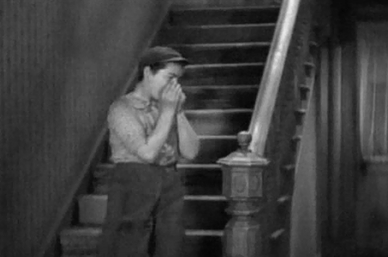
Director William A. Wellman’s used this shot before, but it’s really effective. I love how fast the shot gets until the reveal, and then how it slows down with grief.
Things pick up as Selina is introduced to the life of a farm woman the day after her wedding; up at four, time to plow. She has big plans for the house and the farm, but Pervus’ reluctance and a new baby soon intercede. Meanwhile, the Klauses lose their matriarch, and Roelfe decides to go to the big city and make his way there. He bids her farewell, and this is the last time the characters will see each other for decades.
Pervus gets pneumonia and passes away. Selina and her new son, Dirk, tend to the fields by themselves, and, free from interference, Selina gets to fulfill a lifelong goal by planting asparagus. Her dad had taught her about them when she was a young girl, and she’d always had a soft spot for the plant.
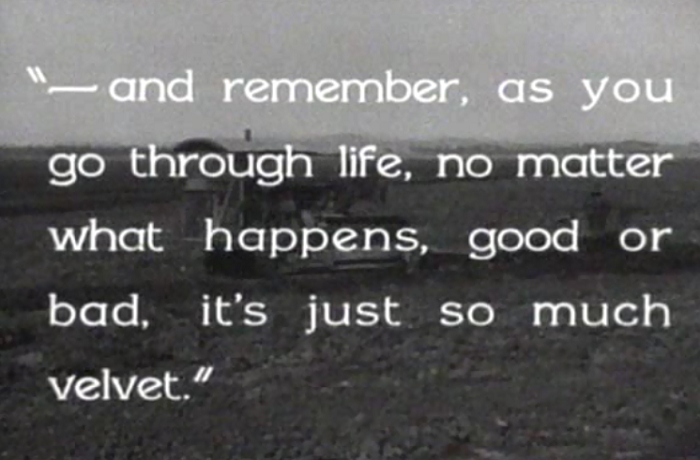
Blah blah blah, get to the part where people cry and stuff.
Selina tends to the field and looks to her young son. “How big is my son?” she asks. She opens her arms out wide. “So big!” He opens his arms out, too, and falls over, giggling.
A few decades later, and Dirk has completed his architecture degree. He’s suave and smiling, but when his date, a married woman, asks if the De Jong asparagus on the ritzy restaurant’s menu has any relation to him, he denies it. He goes to his mother and tells her that he’s going to become a broker since that’s where they money is at. Selina doesn’t understand why brokering works, and tells him its a bad idea. He glibly ignores her.
The rest of the film’s complications, including a bouncy Bette Davis as a possible romantic interest for Dirk until she discovers his laze about ways and the return of Roelfe to see Selena after decades, both help wrap the story to a sublimely satisfying ending. What Selina’s father taught her at the beginning of the film is again mentioned, and we see how it influenced her and shaped the lives she’s touched.
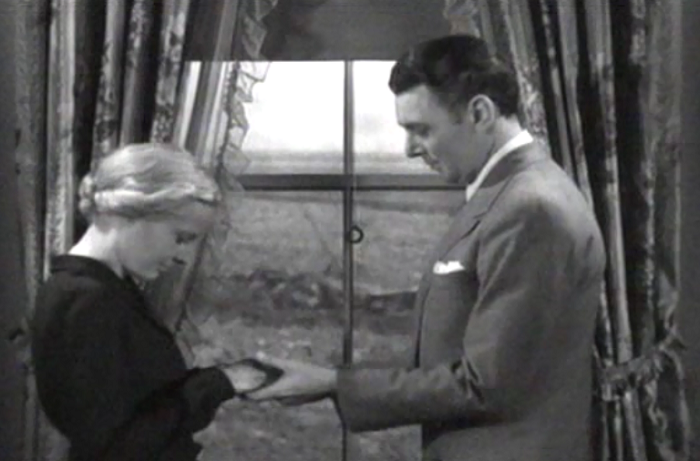
Sweetness.
I know I really should reign in my word count for these reviews, as most of you picking through this will probably be baffled at both the story’s length and my review’s. However, this movie, like the unfortunate Cimarron, covers decades worth of material, and that holds a certain fascination for me, especially seeing how they crammed so many decades into an 80 minute running time.
Today it’s hard to believe, but the charm of distance pulsates throughout the film. Though Selina lives in a farm community, her world is much smaller, normally beginning and ending at the edges of her property. Years go by without contact from friends and lvoed ones, and the only enduring thing is work and toil. People grow old and die, and rarely do we see a big show made of it. This film is very much about the natural order of life, how humans live with the seasons and subsist on their own hard work.
Success is hard work, and it doesn’t pass down through family lines but through the values we pass. While Selina loved her son, her work on the farm doesn’t let her instill the same values that her father had given her or that she had given to Roelfe. What’s important is education and ideas and being able to use that background to create. It’s fascinating to watch a movie where success isn’t overnight, but years of grueling work and pain. And the rewards isn’t a young bright son, but a failure who missed the point of your entire life.
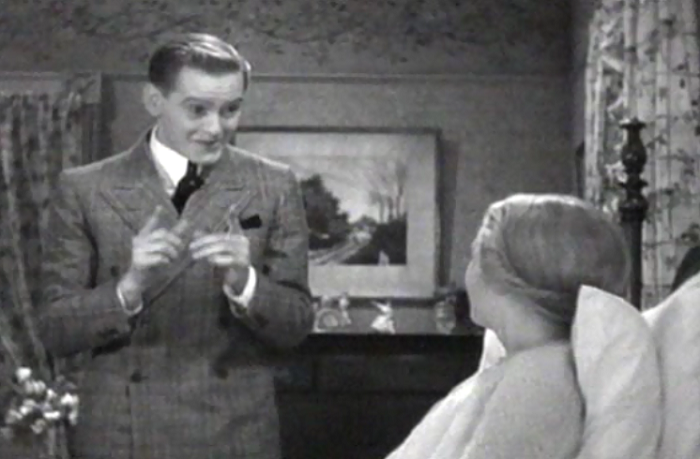
Dirk’s bigness has gotten smaller.
So Big! was the perfect kind of book for the Depression, reaffirming that hard work leads to success while damning those who speculate and profit rather than reinvest. It was put in extremely capable hands with William A. Wellman, one of the most versatile directors of the era, and in lead actress Barbara Stanwyck who performs here with such raw sincerity it’s almost unnerving. The two do a great job in selling this journey, but it’s the end that’s the most pleasurable part. The transformation of Selina from naive girl to grizzled farmer takes so little time but means so much to a few people. Their final scene, which involves another, beautiful curtsy and a simple bit of proselytizing dialogue, kill it.
“There are only two kinds of people in the world that really matter,” Roelfe recollects. “One kind is wheat, and the other kind is emeralds. You’re the wheat, Selina.”
Selina smiles demurely, “And you’re the emeralds.”
Roelfe nods, “And you’re the reason for it all.”
And it just kind of clicks. The impact of a film like So Big! may not be measured in the talk after watching it or the little notes you write afterward. It’s kept in your heart, where you can revisit it, and use the movie as a tool to hopefully better understand yourself and the world you inhabit. Because despite what flashy advertisements or loud movies tell us, life– real life– isn’t about loud successes, but the momentary joy of a life well led.
Gallery
Here are some extra screenshots I took. Click on any picture to enlarge!
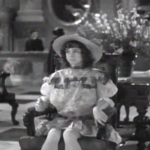
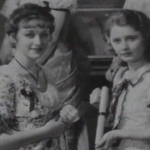
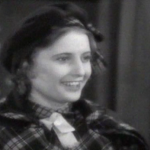
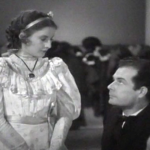
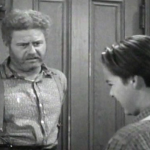
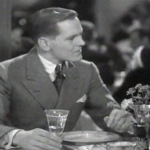
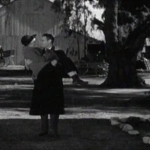
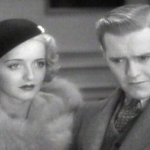
Trivia & Links
- This is a genuinely sweet review from Cinema Styles that shares a lot of my opinions about the film:
[So Big!] doesn’t dwell on emotional repercussions allowing the audience to do that for itself, internally. In both films the primary characters are simpler rustic people, and it would seem disingenuous to show them engaging in emotional mental masturbation over their hardships. They accept their hardships, or deal with them as best they can, and move on. It is their fortitude that keeps them going and allows us, the viewers, to do the feeling for them.
- The incongruous Movie Diva tackles both So Big! and The Purchase Price (another Stanwyck film from the same year also set on a farm and also directed by William A. Wellman) at once. On the film’s origins, she notes:
So Big was based on the novel by Edna Ferber, about the spiritual and financial struggles of a farm wife. Ferber’s parents were Jewish shopkeepers who ran a general store in Kalamazoo, Michigan. Her mother took over the family business when her father began to go blind, setting an example for her daughter of a resourceful businesswoman. After stints as a reporter and as a successful short story writer, Ferber’s wrote a hugely popular novel, So Big, and won the Pulitzer Prize for Literature in 1925. Reviewers commented that the film’s brief running time was too short to encompass 60 years of Selina Peake’s life in a mere 80 minutes. I expected the novel to be enormous, but it is a compact 283 pages. The adaption, by J. Grubb Alexander and Robert Lord, is, in fact, a faithful rendition of the book, with one exception. For some inexplicable reason, the script omits the incident explaining how she manages to make a success of farming, creating the impression, as Jeanine Basinger writes, “a woman like Barbara Stanwyck can apparently go to market to sell her artichokes (sic) in So Big and come home an old woman.”
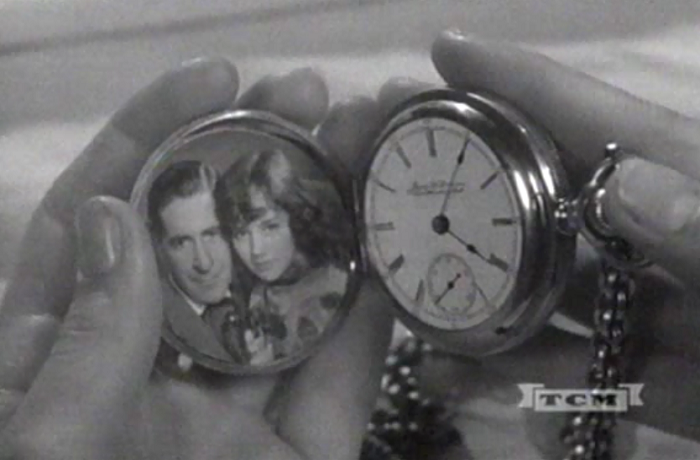
Daddy’s little girl, and the fleeting experience of time.
- TCMdb has an article about the film that mostly focuses on how Bette Davis and Barbara Stanwyck got along, and the result is ‘not well’. The two only ever appeared together in one other film, Hollywood Canteen from 1944, and if memory serves they don’t share any scenes together.
- On that note, Barbara Stanwyck apparently treasured this movie of one of her favorites that she did, and it’s not hard to see why.
- Judy over at Movie Classics talks about the film, but mostly feels that the film’s ending is rushed. Judging from the other articles, it sounds like the movie does remain faithful to the book, though it’s inexplicably missing the sequence where Selina’s farm hits the big time. It’s kind of a jarring separation otherwise, and I will admit the last part of the film feels a little too pat, but I still liked it.
- One other important moral of the story, though I think it’s unintentional: No matter how smart you are, don’t marry an idiot. For some reason, the actor playing Purvis decided that a foreign accent also means that you speak like robot. If you’re a Selina, don’t marry a dull man like Purvis, no matter how sweet the gestures.
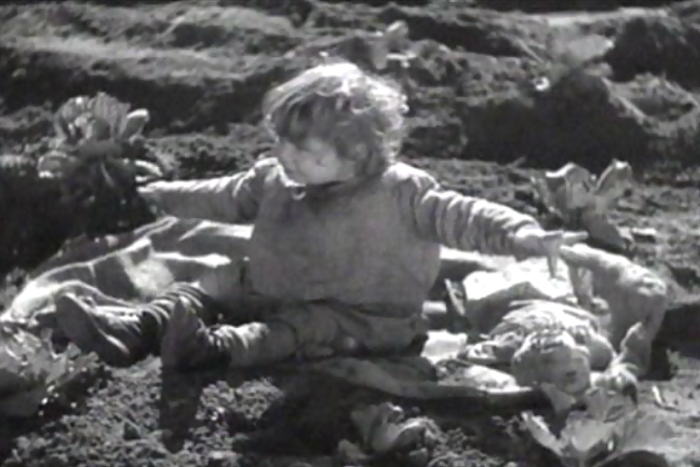
How much is Danny’s appreciation for this movie?
Awards, Accolades & Availability
- This film is actually pretty hard to get a hold of; I can’t even find it on a gray market site! Don’t ask me why, I guess the print must need some fixing or something. I caught it on TCM, and I imagine that’s your best bet for the moment.
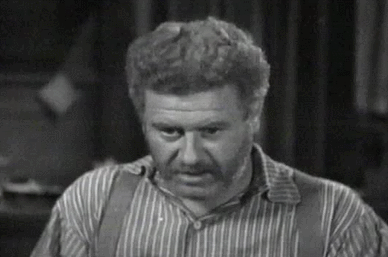 |
Comment below or join our email subscription list on the sidebar!Home | All of Our Reviews | What is Pre-Code? |
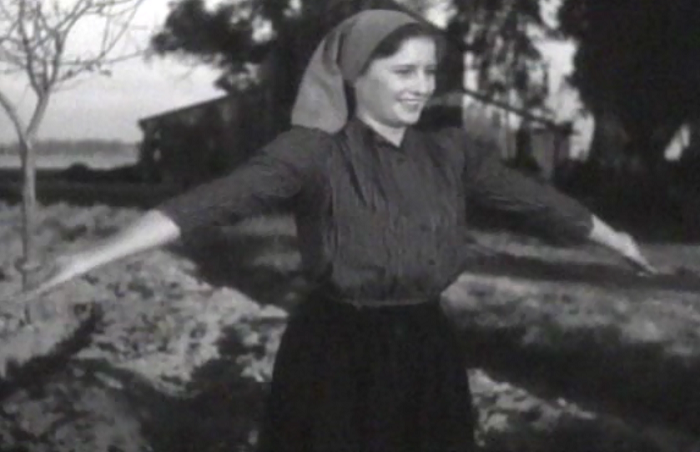




7 Comments
Jandy · July 19, 2013 at 8:09 am
I’ve unintentionally avoided Stanwyck’s early dramas, I think because I fear they’ll be treacly or something. I don’t know, maybe I just tend not to like pre-Code dramas as much as pre-Code comedies.. But this sounds really warm and wonderful, even if I don’t care for decades-long storylines. I’ll have to check it out next time it plays on TCM.
Danny · July 19, 2013 at 6:55 pm
Keep in mind that I’m a complete sap sometimes, but something with this one just clicked for me. If you see it, take some time to roll it around in your head afterward, that really increased my love for it immensely.
Judy · July 19, 2013 at 3:02 pm
Danny, although I felt the ending of the film was rushed, I remember loving the first half, especially the church social with the sale of the women’s baskets, which has always stuck in my mind.Thanks for posting the great scene of the boy finding the lovers together. I think I only saw this once in a dodgy old print on Youtube – I wonder if it will ever get a DVD release. I did think Warner Archive was likely to go for it as it has both Stanwyck and Davis, but so far they haven’t, so you could well be right about there being a problem with the print.
Danny · July 19, 2013 at 6:34 pm
I might have to bug them about it. Like you said, it seems like a sure thing: they’ve already put out The Purchase Price, which shares much of the same crew. I imagine Purchase Price’s more scandalous plotline makes it more attractive than So Big’s quiet morality play, but I can’t imagine it’s just that.
maxfabien · November 1, 2013 at 8:50 am
I like the unintentional laugh toward the end of the film with Barbara Stanwyck in bed and her grown adult son at her side. She says to him the line she had said to him throughout his childhood, “How big is my son?” Instead of stretching his arms out as he did as a child, he replies by extending only his two index fingers about eight inches apart, and say, “So big.”.
Danny · November 1, 2013 at 12:13 pm
I got a kick out of that too. I have to wonder if this was in the original book, or whether it’s a clever sight gag that was too good to pass up.
Chris L. Christensen · December 16, 2016 at 4:54 pm
Bette Davis didn’t like Barbara Stanwyck because she was jealous and insecure. Stanwcyk was less than a year older than Davis and already a star when she made this film while Davis was very unhappy laboring in what she considered unsatisfying supporting roles. Later on after Bette became a star Warner Brothers developed a habit of hiring Stanwyck for roles that Davis rejected because Stanwyck was cooperative and very easy to work with and WB reasoned that they could control Mother Goddamn with the threat of Stanwyck.
Comments are closed.